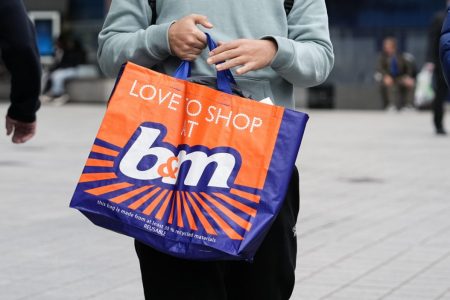Diageo Braces for Potential Tariff Impact and Navigates Shifting Consumer Landscape
Diageo, the global drinks giant, finds itself facing a potential £160 million profit hit if US President Donald Trump proceeds with tariffs on imports from Canada and Mexico. This vulnerability stems from the company’s significant reliance on these two countries for key products. A substantial 42% of Diageo’s US revenue is generated from Mexican-made tequila, while its popular Crown Royal whisky is produced in Canada. The ongoing uncertainty surrounding the tariffs has led Diageo to scrap its growth targets, opting for a more cautious approach in the face of this "fluid" situation. CEO Debra Crew has confirmed the company’s engagement with the US administration, emphasizing Diageo’s extensive US presence, including 11 factories. As a preemptive measure, the company is accelerating imports from Mexico and Canada to bolster US stockpiles before any potential levies take effect. This strategic move follows a previous profit warning last year, attributed to a sales slowdown after pandemic-driven lockdowns had initially boosted demand for spirits. Diageo’s Chief Financial Officer, Nik Jhangiani, highlighted the company’s efforts to maintain sales among cash-strapped US consumers by offering premium spirits in smaller, more affordable bottle sizes.
Guinness: A Beacon of Growth Amidst Uncertainty
A notable bright spot for Diageo is the continued strong performance of Guinness, which has reported double-digit sales growth. The iconic stout enjoyed such a surge in popularity that the company had to ration supplies to pubs last year, a testament to its enduring appeal. CEO Debra Crew aptly described it as a "sell-out year." This impressive growth is attributed to an expanding demographic of younger and female drinkers embracing Guinness. To capitalize on this momentum, Diageo is investing £30 million to expand capacity at its historic St. James’s Gate brewery in Dublin and establish a new beer factory, with the combined capacity to produce a staggering 354 million pints. The company has also firmly dismissed recent speculation about a potential sale of the Guinness brand, reaffirming its commitment to this cornerstone of its portfolio.
Navigating the Celebrity Tequila Landscape
Diageo CEO Debra Crew also commented on the burgeoning celebrity tequila market, suggesting that the influx of new brands, often fronted by high-profile figures, faces challenges. She alluded to the increasing skepticism of supermarkets towards allocating shelf space to these new entrants, particularly given the potential impact of tariffs on Mexican imports. This crowded landscape, coupled with the uncertainty surrounding trade policies, creates a more difficult environment for startups. Crew contrasted this with Diageo’s established position and its strategic acquisition of George Clooney’s Casamigos premium tequila brand for $1 billion in 2021. This underscores Diageo’s focus on established brands with a proven track record, even within a rapidly evolving and increasingly competitive market segment. The example of Kendall Jenner’s 818 Tequila was cited as an illustration of the challenges faced by celebrity-backed brands in gaining traction in this crowded space.
Shell Reopens North Sea Oil Field with Focus on Reduced Emissions
Shifting focus to the energy sector, Shell is restarting its Penguins oil field in the North Sea after a four-year hiatus. This involves the deployment of new wells and a floating production and storage facility designed to reduce carbon emissions by 30%. This move by Shell comes as the company navigates the regulatory landscape following a ruling that halted the development of its Jackdaw North Sea gas field. The Penguins field, located 150 miles northeast of the Shetland Islands, was originally opened in 2002. Shell anticipates production of up to 45,000 barrels of oil per day from the revived field. The oil will be refined outside the UK before returning as petrol and diesel, while the extracted gas will be transported to Scotland for use in the UK’s gas network. Shell emphasizes the importance of the Penguins field in contributing to secure domestic energy production.
Leadership Changes and Financial Challenges in the Corporate Arena
YouGov, the polling firm, is undergoing a leadership change with co-founder Stephan Shakespeare returning as interim chief executive following the departure of Steve Hatch after just 18 months. This follows a period of financial challenges for YouGov, including a profit warning and a significant decline in share price. The company has reported a return to "low-single" digital growth in its data division.
In the housing sector, Crest Nicholson has issued a "going concern" warning, highlighting the risk of breaching debt covenants with banks in the event of a severe economic downturn in the UK. The company reported a pre-tax loss of £143.7 million for the financial year ending October 31st, reflecting a challenging operating environment. Meanwhile, there’s a glimmer of positive news for consumers as food inflation eased slightly in January, dropping to 3.3% from 3.7% in December, according to Kantar data. This slight reprieve was accompanied by increased spending on fruit and vegetables, attributed to New Year health resolutions.
Finally, Octopus Energy, which surpassed British Gas as the UK’s largest energy supplier, reported a £95 million loss for the year to April, a significant swing from the £362 million profit in the previous year. This loss is attributed to expansion abroad and a substantial increase in staff numbers. Despite maintaining revenues at £12.4 billion after acquiring Bulb Energy and Shell Energy, and gaining 2 million customers, Octopus absorbed costs associated with pricing bills below the energy price cap and providing electric blankets to customers. Marketing costs also doubled to £88 million.











